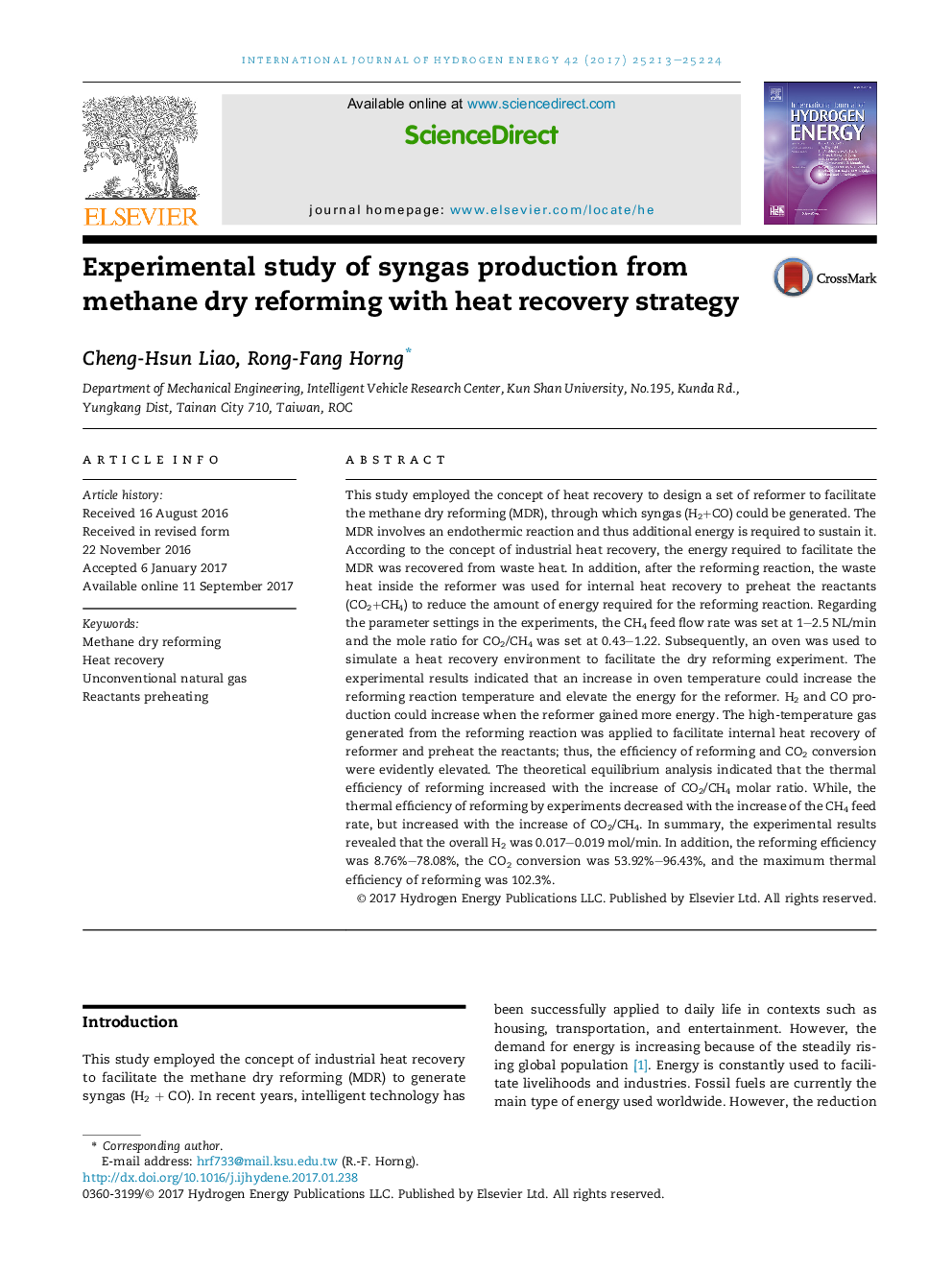| Article ID | Journal | Published Year | Pages | File Type |
|---|---|---|---|---|
| 5145624 | International Journal of Hydrogen Energy | 2017 | 12 Pages |
Abstract
This study employed the concept of heat recovery to design a set of reformer to facilitate the methane dry reforming (MDR), through which syngas (H2+CO) could be generated. The MDR involves an endothermic reaction and thus additional energy is required to sustain it. According to the concept of industrial heat recovery, the energy required to facilitate the MDR was recovered from waste heat. In addition, after the reforming reaction, the waste heat inside the reformer was used for internal heat recovery to preheat the reactants (CO2+CH4) to reduce the amount of energy required for the reforming reaction. Regarding the parameter settings in the experiments, the CH4 feed flow rate was set at 1-2.5 NL/min and the mole ratio for CO2/CH4 was set at 0.43-1.22. Subsequently, an oven was used to simulate a heat recovery environment to facilitate the dry reforming experiment. The experimental results indicated that an increase in oven temperature could increase the reforming reaction temperature and elevate the energy for the reformer. H2 and CO production could increase when the reformer gained more energy. The high-temperature gas generated from the reforming reaction was applied to facilitate internal heat recovery of reformer and preheat the reactants; thus, the efficiency of reforming and CO2 conversion were evidently elevated. The theoretical equilibrium analysis indicated that the thermal efficiency of reforming increased with the increase of CO2/CH4 molar ratio. While, the thermal efficiency of reforming by experiments decreased with the increase of the CH4 feed rate, but increased with the increase of CO2/CH4. In summary, the experimental results revealed that the overall H2 was 0.017-0.019Â mol/min. In addition, the reforming efficiency was 8.76%-78.08%, the CO2 conversion was 53.92%-96.43%, and the maximum thermal efficiency of reforming was 102.3%.
Related Topics
Physical Sciences and Engineering
Chemistry
Electrochemistry
Authors
Cheng-Hsun Liao, Rong-Fang Horng,
